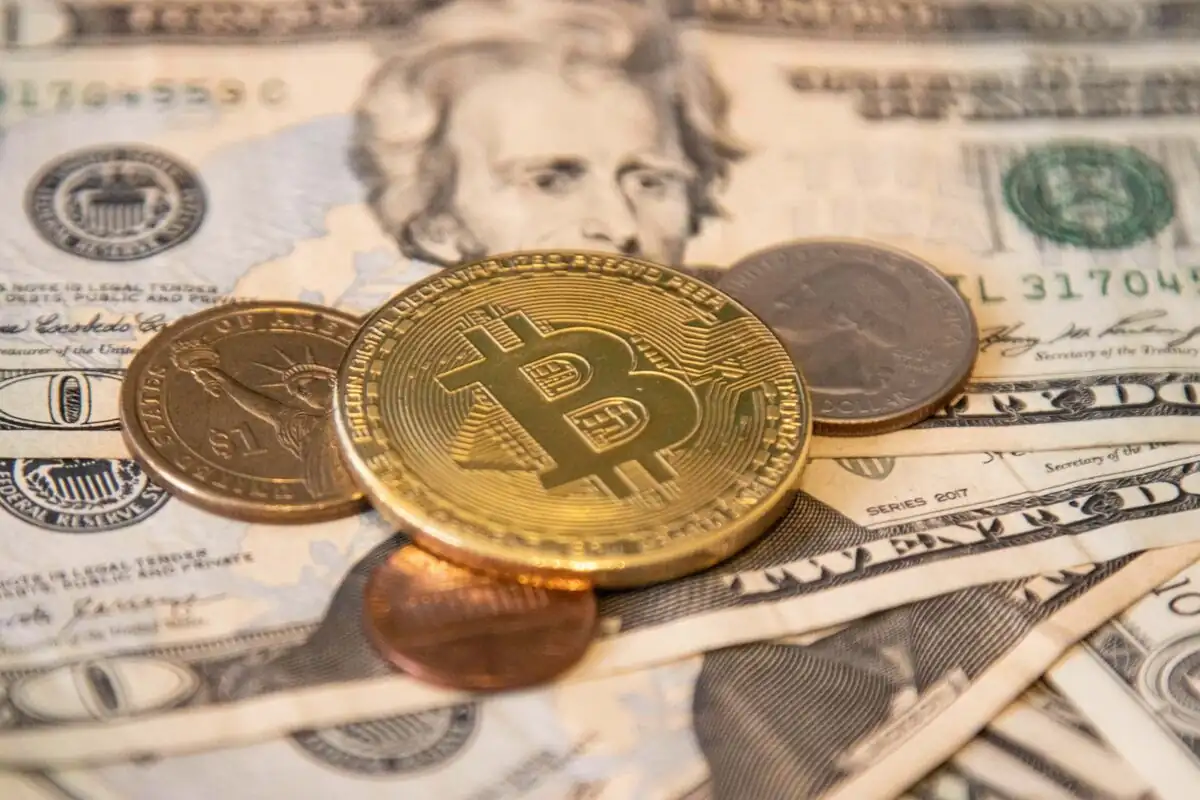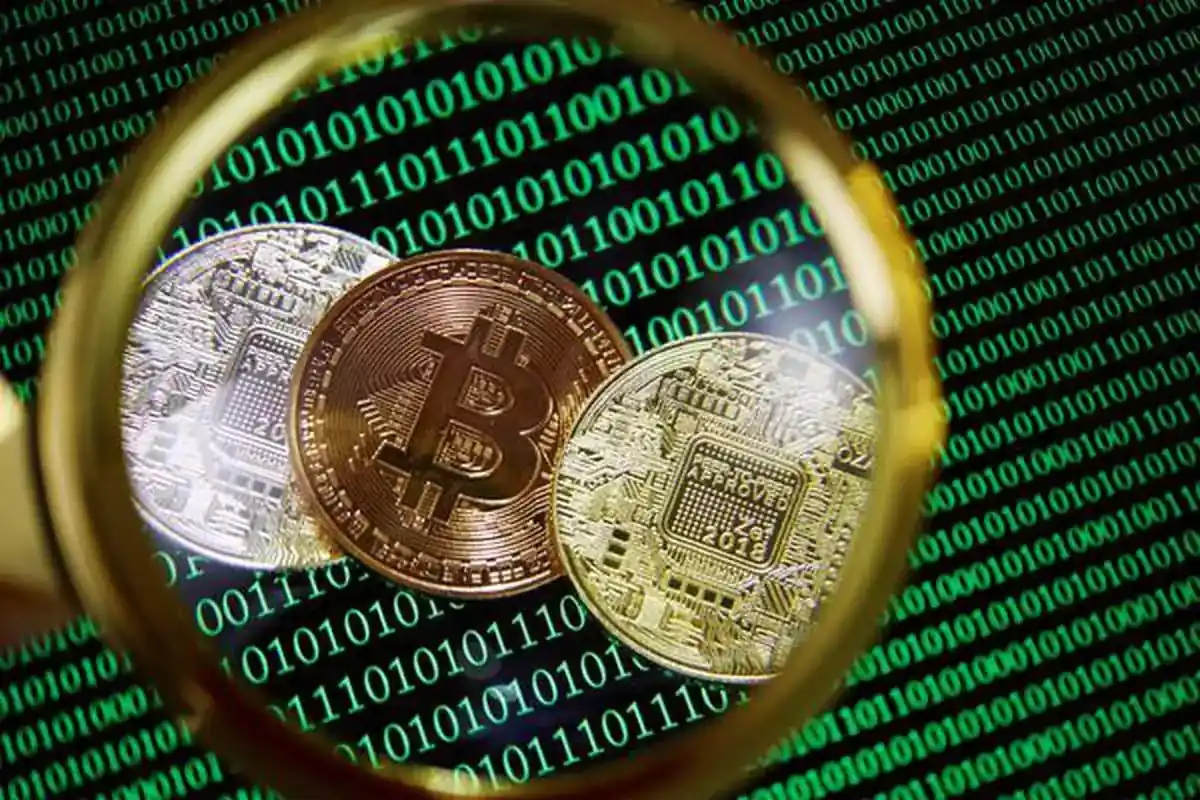Bitcoin has emerged as a groundbreaking force in finance and technology in recent years. Created in 2009 by an anonymous individual or group using the pseudonym Satoshi Nakamoto, Bitcoin introduced a new concept: a decentralized digital currency that operates without intermediaries such as banks or governments. Its revolutionary nature sparked curiosity, excitement, and, inevitably, skepticism. So, is Bitcoin fake or real?
The Rise of Bitcoin: A Revolutionary Digital Currency
With any disruptive innovation comes a fair share of skepticism and doubts. Bitcoin has faced its fair share of myths and misconceptions that have made some question its authenticity. One common misconception is that Bitcoin is merely a tool for criminals and illicit activities. While it's true that cryptocurrencies have been used in some illegal transactions, it's essential to distinguish between the technology itself and its potential misuse. Like any other form of currency, Bitcoin can be used for legal and illegal purposes. Judging the entire ecosystem based on a subset of bad actors is unfair. Another myth surrounding Bitcoin is its perceived volatility and instability. Bitcoin's price has experienced significant fluctuations throughout its history, but it's essential to understand that market dynamics, investor sentiment, and regulatory developments primarily drive this volatility. Like any other asset, Bitcoin's price is subject to supply and demand forces and can be influenced by various external factors. However, as the market matures and adoption increases, we have seen a gradual stabilization of Bitcoin's price. So, is Bitcoin fake or real?
Unveiling the Truth: Examining the Legitimacy of Bitcoin
Now, let's delve into the heart of the matter: Is Bitcoin fake or real? To answer this question, we must consider the fundamental aspects that make Bitcoin a legitimate and authentic digital currency.
First and foremost, Bitcoin operates on a technology called blockchain. This distributed ledger system ensures transparency, immutability, and security. Each transaction is recorded on the blockchain, creating a permanent and tamper-proof record of ownership. The decentralized nature of the blockchain makes it resistant to censorship and manipulation, further establishing Bitcoin's authenticity. Additionally, Bitcoin mining, the process of creating new Bitcoins and verifying transactions, relies on complex mathematical algorithms and cryptographic principles. Miners compete to solve these algorithms, ensuring the integrity and security of the network. This process, known as proof-of-work, requires substantial computational power and serves as a mechanism to prevent fraud and double-spending. Furthermore, Bitcoin's limited supply is another factor that reinforces its authenticity. Unlike fiat currencies, which can be endlessly printed, Bitcoin has a maximum supply of 21 million coins. This scarcity adds to its value proposition and protects it from inflationary pressures. It's crucial to acknowledge that, like any innovative technology, it has challenges and improvement areas. Understanding these nuances will help us make informed decisions and navigate the cryptocurrency landscape more effectively.
Understanding Bitcoin
So, is Bitcoin fake or real? At the core of Bitcoin's authenticity and legitimacy lies its underlying technology: the blockchain. The blockchain is a distributed ledger that records all transactions and activities within the Bitcoin network. Unlike traditional centralized systems, where a single entity or authority controls the ledger, the blockchain operates decentralized. In a blockchain, transactions are grouped into blocks, then added to a chain of previous blocks. Each block contains a cryptographic hash of the last block, creating a sequential and interconnected information chain. This design ensures that any modification to a previous block would require changing all subsequent blocks, making the blockchain immutable and resistant to tampering. Decentralization is a crucial aspect of Bitcoin's technology. Instead of relying on a central authority to validate transactions, the network participants, known as nodes, collectively maintain the blockchain. These nodes work together to verify and validate transactions, ensuring the integrity of the system without the need for intermediaries. So, is Bitcoin fake or real?
Mining and Transactions: How Bitcoin Operates
Bitcoin mining plays a vital role in the operation and security of the network. Miners use specialized hardware and software to solve complex mathematical problems, a process known as proof-of-work. By solving these problems, miners validate and confirm transactions, adding them to the blockchain. Mining serves two primary purposes: transaction verification and the creation of new Bitcoins. Miners compete to solve the mathematical puzzles, and the first miner to find a solution receives a reward in the form of newly minted Bitcoins. This process incentivizes miners to contribute their computational power to secure and maintain the network's functionality. Bitcoin transactions involve the transfer of value from one user to another. Each transaction is cryptographically signed to verify its authenticity and ensure that only the rightful owner can transfer the associated Bitcoins. These transactions are broadcasted to the network, where they await confirmation and inclusion in a block by miners. Once a transaction is confirmed and added to the blockchain, it becomes permanent and cannot be reversed. So, is Bitcoin fake or real?
Evaluating the Security of Bitcoin: Cryptography and Immutable Records
Bitcoin's security relies heavily on cryptographic principles. Transactions are secured using public-key cryptography, where each user has a pair of cryptographic keys: public and private. The public key generates the address to which Bitcoins can be sent, while the private key is kept secret and used to sign transactions to prove ownership. The immutable nature of the blockchain enhances Bitcoin's security. Once a block is added to the blockchain, it becomes part of a permanent record that cannot be altered without the consensus of the network participants. This characteristic makes it highly challenging for malicious actors to manipulate the transaction history or forge transactions. While the blockchain is highly secure, it's important to note that the security of individual Bitcoin holdings depends on the precautions users take. Safely storing private keys, using secure wallets, and employing best practices in cybersecurity is essential to protect against potential risks and vulnerabilities. So, is Bitcoin fake or real?
Analyzing the Value of Bitcoin: Market Factors and Economic Implications
Market factors and economic implications drive Bitcoin's value. The price of Bitcoin is primarily determined by supply and demand dynamics in the market. As more people adopt and invest in Bitcoin, the demand increases, potentially increasing the price. Conversely, if the demand decreases, the price may decline. Bitcoin's limited supply is a significant factor contributing to its value. With a maximum supply of 21 million coins, scarcity plays a role in establishing Bitcoin as a store of value similar to gold or other precious commodities. This scarcity, combined with increasing global adoption and recognition, has led to Bitcoin being viewed as a hedge against inflation and a potential alternative to traditional financial systems. So, is Bitcoin fake or real? Economic and geopolitical factors also influence the value of Bitcoin. Government regulations, macroeconomic conditions, and investor sentiment can impact Bitcoin's price and market behavior. Additionally, advancements in technology and the integration of Bitcoin into various industries can further contribute to its value proposition and market demand.
Examining the Real-World Impact of Bitcoin
Bitcoin can disrupt traditional financial systems by offering a decentralized and inclusive alternative. So, is Bitcoin fake or real? Its borderless nature allows for seamless peer-to-peer transactions across the globe, eliminating the need for intermediaries and reducing transaction fees and processing times. It has significant implications, especially for individuals in regions with limited access to banking services. Moreover, Bitcoin has challenged the notion of central banks and government-controlled currencies. As a decentralized currency, it operates outside the control of any single authority, which can be both empowering and concerning. Bitcoin's growing popularity has sparked debates among economists, regulators, and policymakers regarding its impact on monetary policy, financial stability, and the role of central banks in the digital age. Bitcoin's adoption has experienced significant growth worldwide. It has garnered attention from individuals seeking financial sovereignty, tech enthusiasts, and institutional investors. Countries like El Salvador have even adopted Bitcoin as a legal tender, demonstrating its potential to reshape economic systems. Bitcoin's decentralized nature and censorship-resistant properties appeal to individuals living under oppressive regimes or facing economic instability. So, is Bitcoin fake or real? It allows them to store and transfer value independently, bypassing traditional barriers and restrictions. Additionally, the convenience and accessibility of Bitcoin have attracted a new wave of users, including millennials and tech-savvy individuals who are embracing digital assets as part of their financial strategies. As Bitcoin continues to gain traction, regulators worldwide are grappling with creating appropriate legal frameworks to govern its use. The decentralized nature of Bitcoin presents unique challenges for traditional regulatory structures designed for centralized financial systems. Governments and regulatory bodies are seeking to balance protecting investors, preventing illicit activities, and fostering innovation in cryptocurrency.

Case Studies: Real-Life Applications of Bitcoin in Various Industries
Bitcoin's impact extends beyond the realm of finance. It has found practical applications in various industries, showcasing its versatility and potential for disruption. Here are a few notable examples:
E-commerce
Several online merchants and platforms have started accepting Bitcoin as a payment method, enabling users to purchase using their digital assets. Among other tools, PlasBit offers e-commerce owners a crypto payment widget that allows them to accept crypto as a payment method. How does it work?
1. Create an account: Create an account to choose your integration.
2. Choose integration: Choose the widget that fits your website.
3. Integrate the widget on your website: You will have a new payment method available by doing this step.
4: Receive your payments: Start accepting payments in cryptocurrencies, and we will convert them into fiat currency and credit them to your account.
This way, you can easily be ahead of the game and accept cryptocurrencies as a payment method on your website. You can receive payments in 10+ types of cryptocurrencies and automatically convert them into 50+ local currencies. The volatility risk is zero, as we handle the automatic and instantaneous conversion.
Cross-Border Transactions
Bitcoin's borderless nature makes it an attractive option for cross-border payments, eliminating the need for intermediaries and simplifying the process. But how to do Bitcoin transactions? Here, too, PlasBit can come to your aid. Here is a step-by-step guide on how to make a BTC transaction:
1. Open a wallet: Choose and open a crypto wallet according to your needs. There are many different types, and we provide you with a confidential and secure wallet with which you can have interoperability, privacy, and security.
2. Deposit funds: After opening a wallet, you can quickly receive or send funds to others. To make a deposit, you need the wallet address, which you can easily find on the dashboard.
3. Cash out your cryptos: You can convert your BTCs into fiat currency, withdraw them at any ATM, or even make physical or online transactions. To do this, you need a crypto debit card, like the ones we provide.
Decentralized Finance (DeFi)
Bitcoin serves as collateral and a liquidity source in decentralized finance applications, enabling users to borrow, lend, and earn interest on their holdings without relying on traditional financial institutions. As Bitcoin's real-world applications expand, its potential to reshape industries and empower individuals becomes increasingly evident.
Making the Most of Bitcoin with Us
In the fast-paced world of cryptocurrencies, security and privacy are paramount. It is where we step in, offering a revolutionary solution for securely owning and utilizing Bitcoin and other digital assets. You can easily, securely, and confidentially buy BTC on our platform. To sign up for our platform, you only need an email and create a secure password. Once logged in, you can add two-factor authentication and further protect your account. Once done, you can trade with all major cryptocurrencies confidentially. To buy Bitcoin, you only need to load your account via a bank transfer or debit card; otherwise, you can deposit directly into cryptocurrencies using your wallet address. If, on the other hand, you plan to make confidential cash out of Bitcoin in your possession, then we have another solution for you: With our cards, users can easily convert their Bitcoin and other cryptocurrencies into traditional currencies. Our Visa cards can be used at millions of locations worldwide, online and offline, making it easy to spend your digital assets wherever Visa or Mastercard is accepted. Our mission is to provide a secure and user-friendly platform that simplifies the management of cryptocurrencies. We understand the importance of safeguarding your digital assets and ensuring a seamless experience, whether you're a seasoned cryptocurrency enthusiast or just getting started. With us, you can conveniently access Bitcoin and other cryptocurrencies without complex setups or worrying about cybersecurity risks. Our state-of-the-art security measures and advanced encryption protocols protect your funds.
Convenience
Our crypto debit cards seamlessly bridge cryptocurrencies and traditional financial systems. You can easily convert your Bitcoin into spendable fiat currency, allowing you to easily make purchases, withdraw cash from ATMs, and manage your finances.
Security
We employ robust security measures to protect your digital assets. With advanced encryption, secure servers, and multi-factor authentication, we prioritize the safety of your funds and personal information. Our stringent security protocols ensure that your transactions and account details remain confidential and tamper-proof. The critical element that sets us apart in ensuring maximum protection is the storage of funds offline in different cold wallets. By storing funds offline and with multi-signature wallets, we make ourselves immune to hacker attacks or attempted theft, ensuring peace of mind for our users.
High Privacy
We understand the importance of privacy regarding cryptocurrencies. Our platform allows you to transact without revealing personal information or linking your identity to your crypto debit card. This privacy provides peace of mind and aligns with the principles of decentralized currencies. In fact, we strongly believe that Web3 can restore financial and identity freedom to individuals. We do not take it upon ourselves to tax the capital gains of our users and leave it up to them to do so or not. We do not share users' private data with authorities and governments and put the privacy and confidentiality of your transactions and activities first.
Unlocking the Future
As the world embraces the potential of cryptocurrencies, we stand as a reliable and innovative solution for securely holding and utilizing Bitcoin and other digital assets. Whether you want to make everyday purchases, travel internationally, or manage cryptocurrency investments, our services and exchange offer a user-friendly and secure option. By utilizing us, you can confidently navigate the world of cryptocurrencies, taking advantage of benefits while ensuring the utmost security and convenience. So, is Bitcoin fake or real? In conclusion, the question of whether Bitcoin is fake or objective has been decisively answered. Bitcoin is a legitimate and authentic digital currency supported by robust technology, decentralized principles, and real-world applications. Its impact on financial systems, global adoption, and transformative potential must be addressed.







